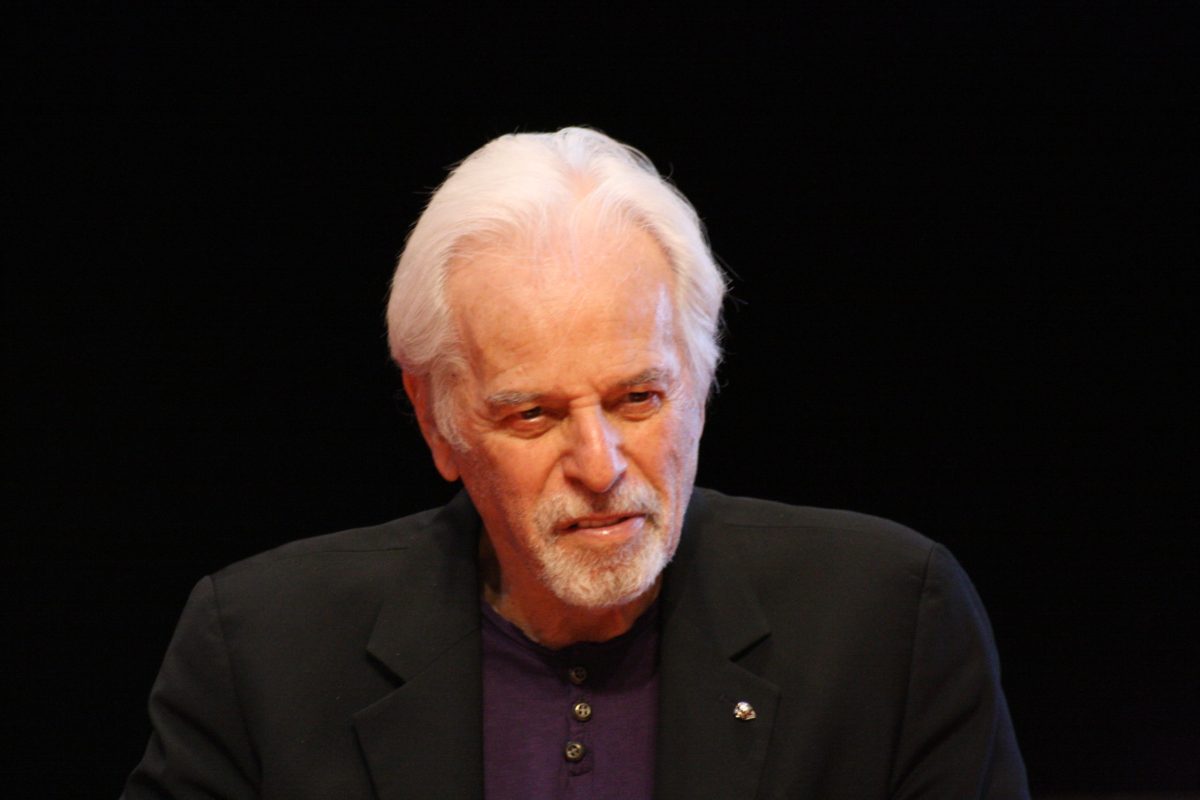You may not enter into the public eye by choice, but if you do, you probably want your name to be known for something positive.
When you participate in the Olympics, your entire life immediately becomes public. What you say, what you do, who you love, all come under scrutiny. For the past month, athletes were paraded across all forms of media, from news outlets to social media and television spots, all the world could see were these superhuman sportsmen and sportswomen.
According to Bloomberg, roughly 23 million people tuned to Rio as the 2016 Olympics lit the city. Thousands of athletes took to the stage to compete. From the apparent “last appearances” of Usain Bolt and Michael Phelps to the new stars Katie Ledecky and Fu Yuanhui, these stars dominated world consciousness for the past month.
However, their treatment by worldwide media appeared to differ depending on their gender. Corey Cogdell-Unrein, an Olympic bronze medalist in trap shooting, was identified by her relationship to her husband, Bears lineman Mitch Unrein in the title of the article that was supposed to celebrate her achievement. It went on to detract from her win to giving more information about the schedule of Unrein and was heavily criticized for this reason.
Meanwhile, Olympic coverage in other countries seems to be more brutal. Kim Yeon-goung, an olympic volleyball player who hails from South Korea, won against the Japanese team in a final count of 3-1, yet an article published by koreatimes focuses on her preferences for a boyfriend. Referring to her 192 cm height, “The average height of South Korean men is 174.9 centimeters. Regrettably, it would be better for her to look for a boyfriend somewhere outside the country.”
Then, there is swimmer Katinka Hosszu of Hungary, whose husband and coach Shane Tusup was credited as the reason of Hosszu’s success by NBC sportscaster Dan Hicks. The internet exploded in rage at this, as many note that Hosszu was the woman who won the gold medal, and not her husband.
This isn’t a recent trend. In the past tennis star Serena Williams, who happens to be a four-time Olympic medal winner, has faced several criticisms on her body and appearance. On social media, many have referred to her as “a gorilla,” an insult that seems to apply to specifically female athletes.
Obviously, negative coverage isn’t exclusive to female athletes. Since Lochtegate, the scandal involving swimmer Ryan Lochte, several members of the men’s swimming team have come under fire. Yet, negative coverage on women can spark, unprovoked, from actions that reportedly have no connotations. Gymnast Gabby Douglas, a relative newcomer to the Olympics, endured several criticisms of her character, ranging from her hair to her expressions during her team’s performance.
“When they talk about my hair or not putting my hand over my heart or being very salty in the stands… for me it was very hurtful,” said Douglas.
Journalism, in this sense, is deplorable. Media surrounding anyone, not limited to just women, athletes, people of a creed, color, or lifestyle, should not be reduced to their relationships to other people or superficial things about them. Rather, they should be celebrated by their actual accomplishments, which should be the reason they are newsworthy in the first place.
While many millennials believe traditional news outlets to be out-of-date for these reasons, many forget the impact that these outlets have on the public. After something is published, people talk about it. Regardless of the intent of the author, people will think what they will.
Newspapers should strive to reach a level of journalistic quality that correctly identifies the victor by their victory, an event by its merit and not its agenda, and so on. As seen through the negative press surrounding these athletes, news is still important in today’s world. But, it only can only be modern if these journalistic conventions are followed.
All people, from athletes to politicians, celebrities to normal-folk, are affected by what is written about them. This is why it is important for media to keep in mind the effects a piece has on an entity and a community.
We have to hold ourselves to a higher standard. Journalists can do better.
For those who have never picked up a physical copy of a newspaper before, those who now obtain their news from the ever-growing internet, thanks for picking up this paper. We hope you stay with us throughout the year.
Come along for the ride, and we vow to report quality news.





























